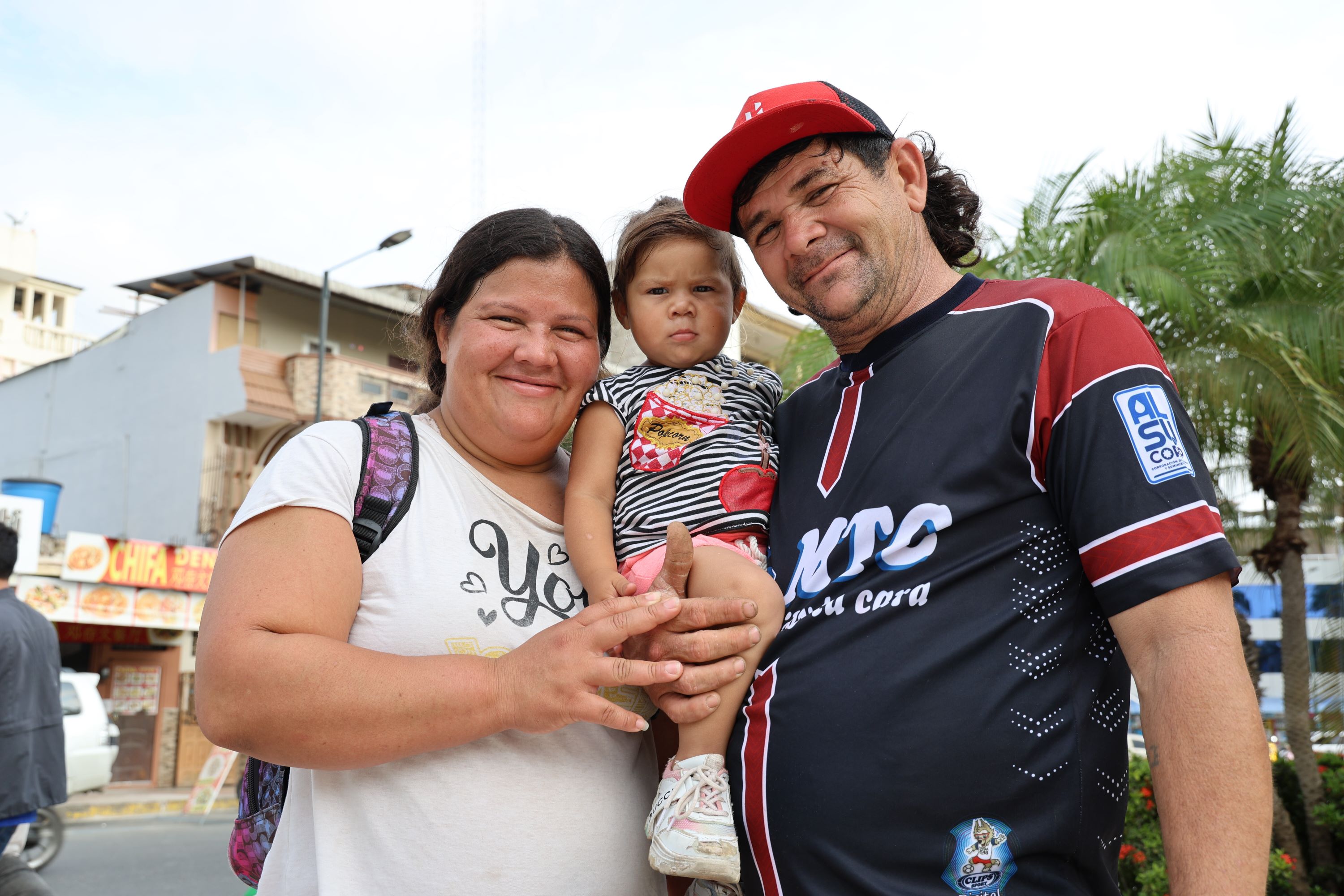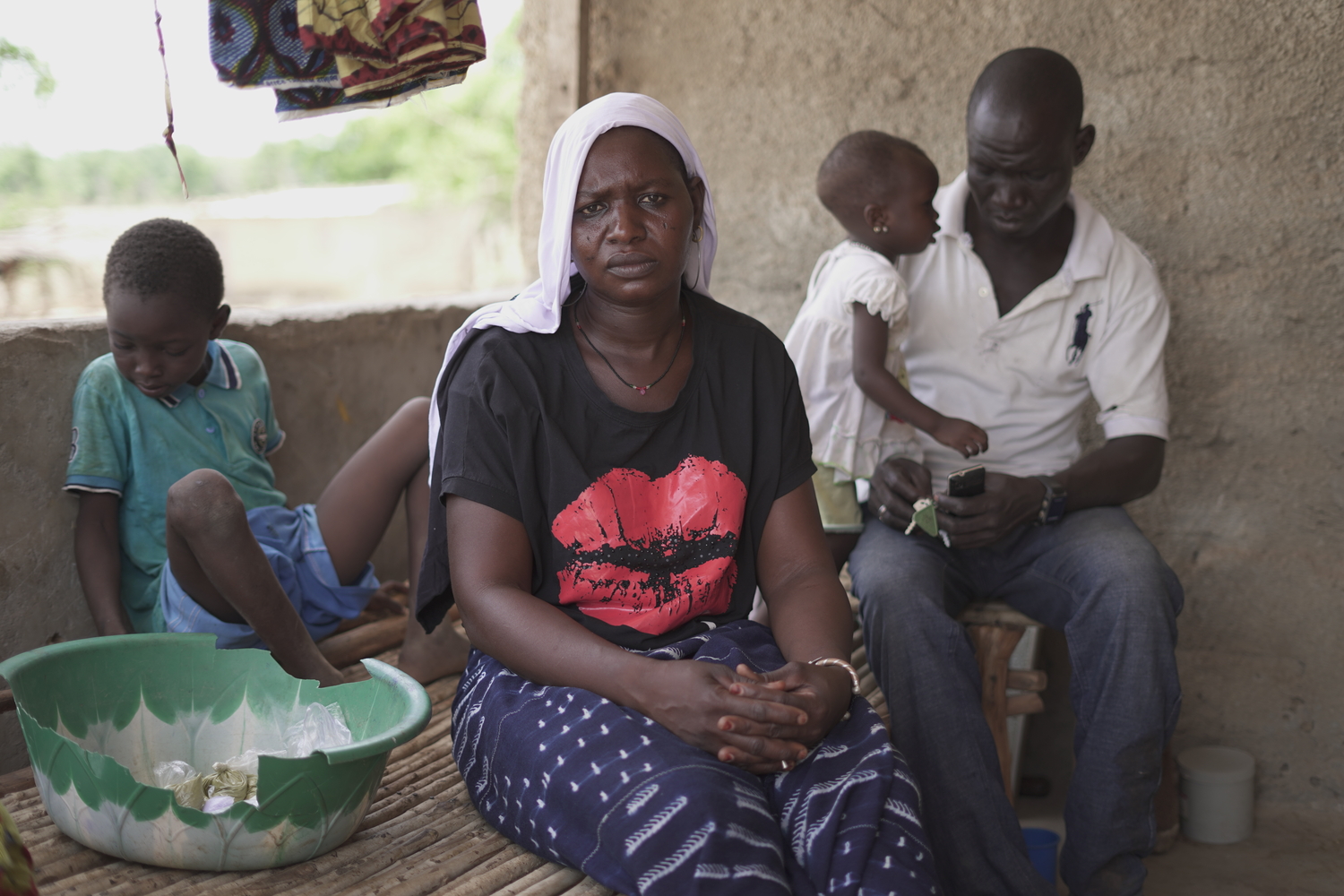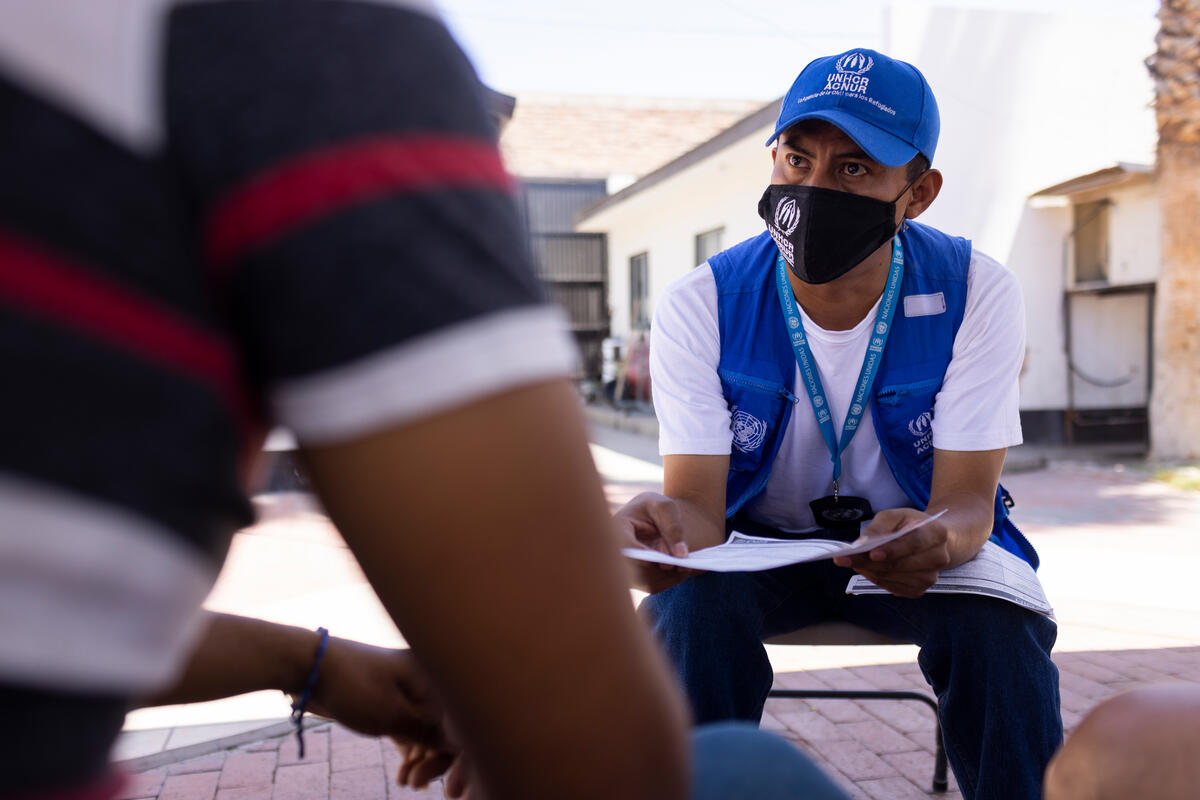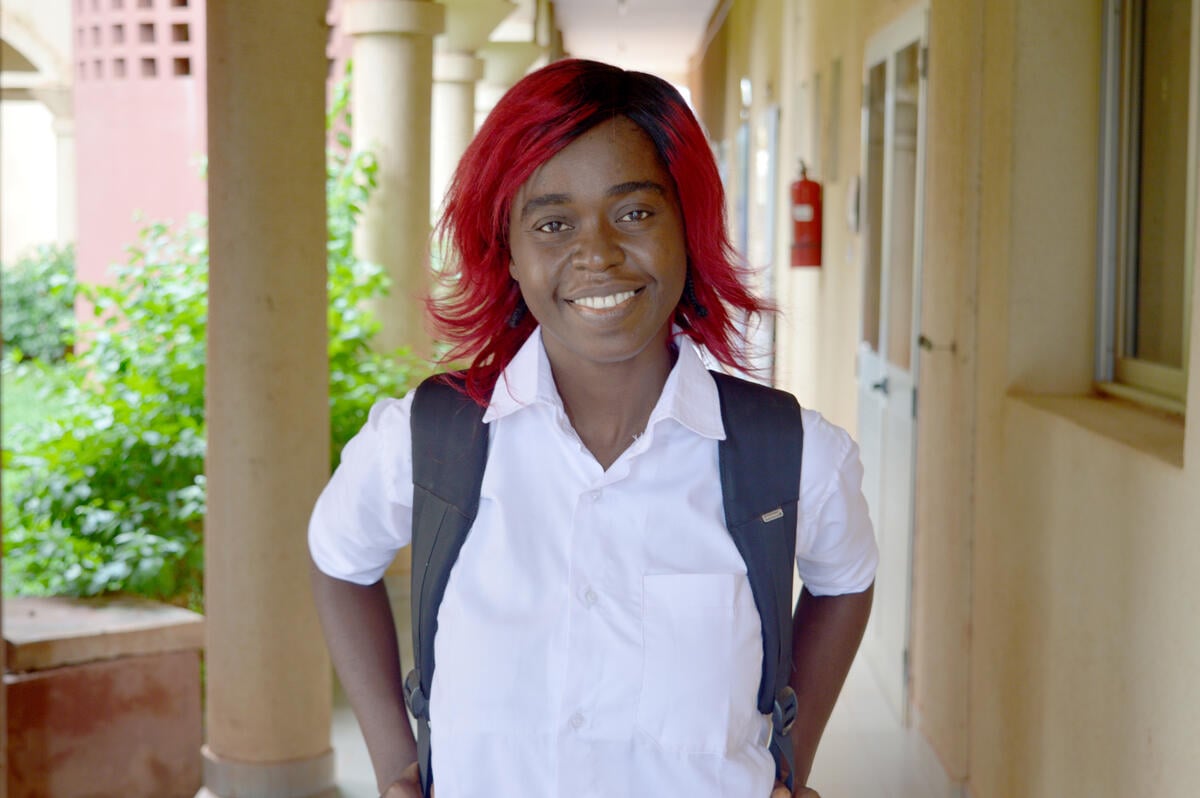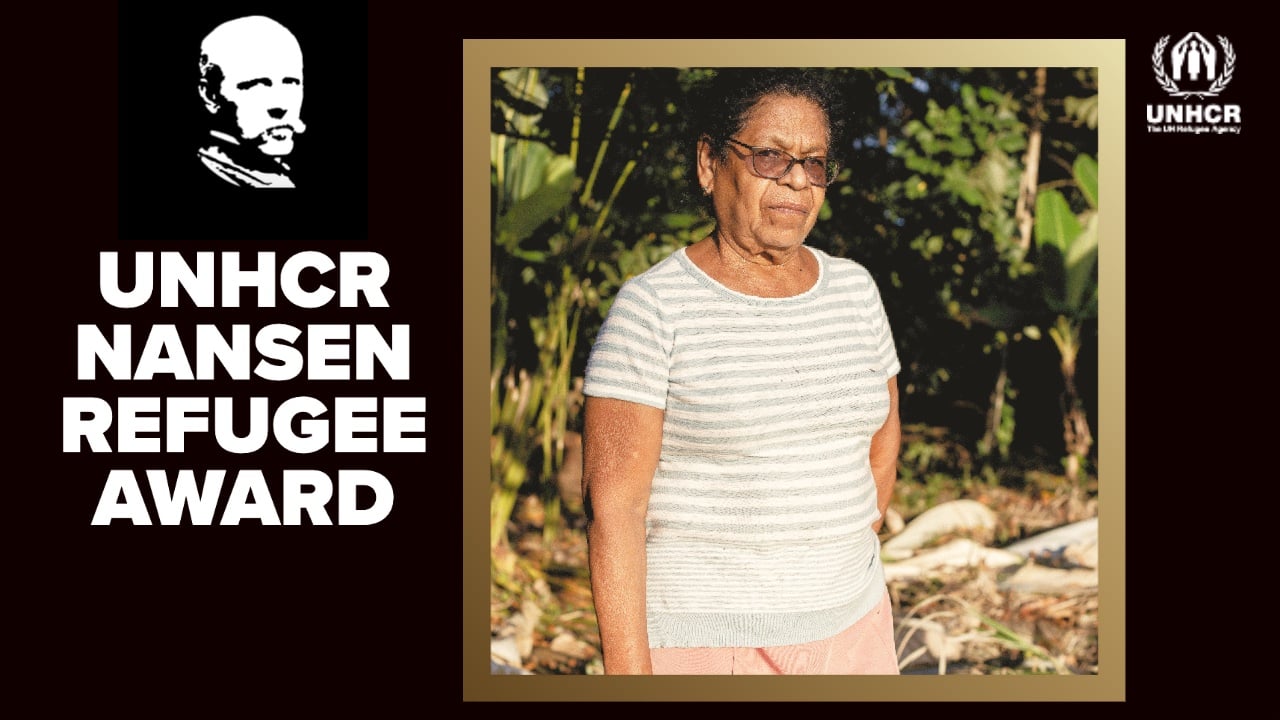Language class helps refugees span cultural gaps in Costa Rica
Language class helps refugees span cultural gaps in Costa Rica

SAN JOSÉ, Costa Rica, July 26 (UNHCR) - Bangalay came to Costa Rica by accident. He arrived while travelling from his native Côte d'Ivoire, heading towards what he believed was the United States. However, the ship he boarded left him in Panama and after being detained for some time, he managed to take a bus to Costa Rica, where he sought asylum.
This explains how the 17-year-old came to be seated in a Spanish class created exclusively for asylum-seekers and refugees from outside the Americas living in San José, the capital of Costa Rica.
The Association of International Consultants and Advisors (ACAI), a non-governmental organization that has been implementing UNHCR programmes since the 1990s, developed a programme in May last year that offers Spanish classes twice per week.
"The classes are a great support system for them," said Gloria Maklouf, director of ACAI. "All of the students fled their home countries to save their lives. Now, during the classes, they are able to talk with each other and share their experiences. Language is an indispensable tool for their integration process and for finding work."
Instructor Carmen Wirdyan, who holds a Master's degree in Psychology, is herself a refugee who had worked as a professor in her native Colombia. She receives a token payment for her classes, but feels very much in her element when teaching the 12 refugees and asylum-seekers.
"I love my students," she said. "Even though I am unable to solve all of their problems, I want to help improve their situation in the country as best as I can."
Kristin Halvorsen of the UNHCR office in San José acknowledged that refugees must overcome many obstacles in order to integrate themselves into Costa Rican society. It is even more difficult when their customs and backgrounds are so dissimilar to the local reality, as is the case with these students from Africa and Asia.
"When the arrival of these extra-continentals began in 2009, it signified a major challenge for UNHCR and its partners," said Halvorsen. "Their needs are different from the majority of refugees received in the country, namely Colombians who already know how to speak the local language."
The students all agree that the Spanish classes are, in some way, a symbol of a new life, free from the armed conflict that they have been victims of for so long.
"I want to forget all of the horrible things that happened in Nigeria and start from scratch," said 31-year-old Grace, who arrived in April last year. "I hope to have the life that I always wanted but could never have. These classes are the first step towards that goal."
By Erin Kastelz, in San José, Costa Rica

